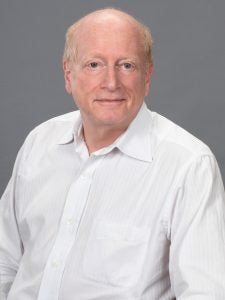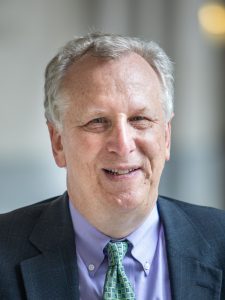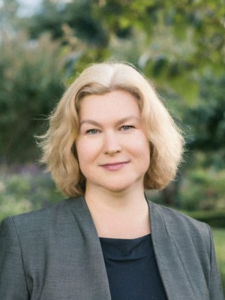Russia After Putin: Learning from the Past, Planning for the Future
As Russia’s horrific war of aggression against Ukraine approaches its second anniversary, expert conversations in the United States understandably focus on ensuring Ukraine’s victory. But Russia's defeat will not guarantee a sustainable peace; that will require a fundamental transformation of the Russian state and Russian society. Yet, so far, there has been little discussion of Russia’s post-war future.
Establishing the rule of law is a key component of a peaceful post-war Russia. The current discourse often overlooks the extent to which law, legal design, and legal process mattered for Russia’s post-Soviet trajectory, first during the 1990s and then as it was sliding into authoritarianism during the Putin era. What mistakes did Russian lawmakers and their Western advisers make in the early post-Soviet years? Were there design flaws from the outset? What were the legal instruments, structures, and processes that subsequently enabled Putin’s regime to consolidate its power?
Once the opportunity for legal reform arises, it is vital that Russia does not repeat the mistakes of the past. What are possible ways forward towards constitutionalism in a post-war, post-Putin Russia? What vision of separation of powers, federalism, and human rights should a new Russia embrace? How should it tackle endemic corruption, restore space for civil society, and ensure the independence of the media? What role should transitional justice play?
Russia After Putin explored how to build the rule of law into Russia’s future. The event offered an opportunity to engage with experts, scholars, and activists who share a passion for understanding Russia’s political landscape and a desire to ensure her democratic future.
Watch the full event below:
Introduction by Elisa Massimino
PANEL 1 — LEARNING FROM THE PAST
International observers could not have foreseen Russia’s current political situation when the state began its transition to democracy in 1991 after the fall of the Soviet Union. Yet, flaws and weaknesses at the heart of the democratic transition process made Russia’s slide to autocracy all but inevitable.
This panel examined where the reformers went wrong in trying to democratize Russia, which ultimately set the stage for the rise of Vladimir Putin and Putinism. From these discussions, panelists hoped to extract lessons that may inform future reform.
The fall of the Berlin Wall, which heralded the end of the Cold War and a start to Russia’s democratization, was far from a smooth transition, acknowledged Caroline Fredrickson. Though the post-Soviet era governance structures were grounded in democratic and capitalist ideals, the panelists discussed, the public’s lack of familiarity with these ideas allowed lingering authoritarian doctrines to persist. “Structures are only as good as the legal culture allows for,” observed Fredrickson.
The new economic and political systems lacked legitimacy among the Russian people. According to Ekaterina Mishina, the change in mindset from Soviet-era to democratic-capitalist was dramatic, and a lack of explanation from reformers about institutional changes fostered resistance to relinquishing Soviet-era beliefs. The end of the Soviet Union did not reflect Russian society’s readiness for political and economic change, she explained, noting that “the hardest part was initiating democratic reform in a country with no experience with democracy.”
Popular acceptance was also undermined by the enduring authoritarian principles that underpinned reform throughout the 1990s. Jeffrey Kahn emphasized that a democratic system in theory did not inevitably translate to practice, mentioning Yeltsin’s attempt to rule by decree in 1993. Kahn repeatedly stressed that we should “not underestimate the staying power of the old ways of doing things.” In working with the revised Russian Criminal Procedure Code, Kahn quickly learned that though Russian law was reformed on paper, the same Soviet-era judges – and their beliefs – molded the legal system.
Despite the introduction of new concepts in theory, the tension and ambiguous transition between the new principles and the old hindered the Russian legal system’s efficacy. Randy Bregman recalled that “the economy was often several steps ahead of the law,” which forced him to use U.S. legal concepts to fill gaps where Russian law was unclear or silent. Bregman noted that this ongoing effort to determine the legal system’s structure continued until the turn of the century, which weakened the system’s ability to hold individuals accountable and eased Putin’s path to power.
In response, Kathryn Hendley asked “what it would take to shift the country’s legal culture” to pave the way for a stronger legal system? She highlighted the public’s lack of confidence in the Russian constitution, a sentiment that was exacerbated by Putin’s constitutional amendments. She did, however, point out that more civil cases are being brought to Russian courts, indicating Russians’ increased willingness to engage with the legal system.
Looking forward, the panelists noted that current engagement with the courts and legal practitioners could indicate a path to legitimacy for the Russian legal profession that was missing in the 1990s — one that enables accountability, advocacy, and, potentially, successful future reform.
PANELISTS
-
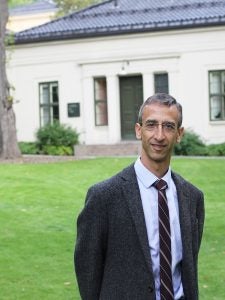
-

-
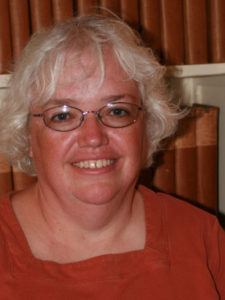
Theodore W. Brazeau Professor of Law & Political Science, University of Wisconsin-Madison
Kathryn Hendley
-
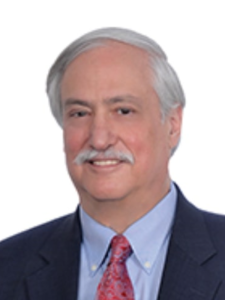
-

Distinguished Visiting Professor from Practice, Georgetown Law
Moderator: Caroline Fredrickson
PANEL 2 — PLANNING FOR THE FUTURE
Putin will not live forever, but Putinism may endure in Russia long after Putin leaves power. If and when Russia turns away from Putin and Putinism and towards democracy and rule of law, it is critical that defenders of democracy and human rights around the world be prepared with a plan for Russia’s future.
This panel examined ideas of what justice and accountability would look like in a post-Putin(ism) Russia and how the international community could support accountability and a transition to democracy without repeating the mistakes of the past.
David Rubino, who moderated the panel, asked about the vision for Russia’s post-Putin future. As the initial transition to democracy in the 1990s failed to “confront the crimes of the Soviet era” and left the Soviet system intact, Grigory Vaypan believes that the “pathway forward for Russia is accountability of the state” for its crimes and abuses, both under Putin and during the Soviet era. Many of those responsible for Soviet atrocities remain in power today. “No one has ever been brought to justice; no one has ever been held accountable,” he emphasized. Accountability is also important internationally. “Without decisive measures to address Russian aggression, the Russia problem will continue to exist,” Vaypan stated. “A ‘rule of law’ Russia is the only guarantee of lasting international peace and security.” While true reform may take a long time, and though the structure of the transitional justice model must be context-dependent, Vaypan advises that an “agenda should be on the table for D-Day” because “the window of opportunity is usually very narrow” when a regime collapses.
Rubino agreed and asked what role the West should play in that reform effort. Mark Tushnet concluded that external advisers may not be helpful, as good advice “requires a combination of local knowledge and some distance,” but finding both is difficult because the necessary depth of local knowledge is undermined by distance. In addition, Tushnet explained, local people know that international advisers are “looking to their sponsors at home” and mistrust their claims of being “disinterested advice-givers.” Vaypan emphasized that reform efforts should be domestic and led by civil society but advised that the international community should demand transitional justice as part of a post-war settlement. Rubino added that the West can “continue to advocate for and support the champions we know exist in the country,” as well as their domestic and international networks, so the right systems and people are in place when the time comes. However, William Pomeranz indicated that the West would need to encourage young people who have fled Russia to “go back to Russia and form the new generation trying to reform,” though the longer the war drags on, the less likely they will return.
The panel also discussed the legal profession’s important role in democratic reform post-Putin. Pomeranz asserted that the use of private law over the last thirty years could help create a new legal system, but that it would require an independent legal profession and force of will. Unfortunately, Maria Voskobitova explained, “there is no unified legal profession,” and it currently has little to no “influence on the development of law,” making the coalescence of that willpower difficult to maintain, especially with many lawyers having fled. To build a stronger legal profession, Vaypan advised that “today is the time to invest intellectually in the younger generations, the aspiring lawyers,” including facilitating access to moot courts and the Jessup competition. “Keep supporting Russian law students,” he said, and the legal professionals they become will help rebuild a post-Putin Russia.


